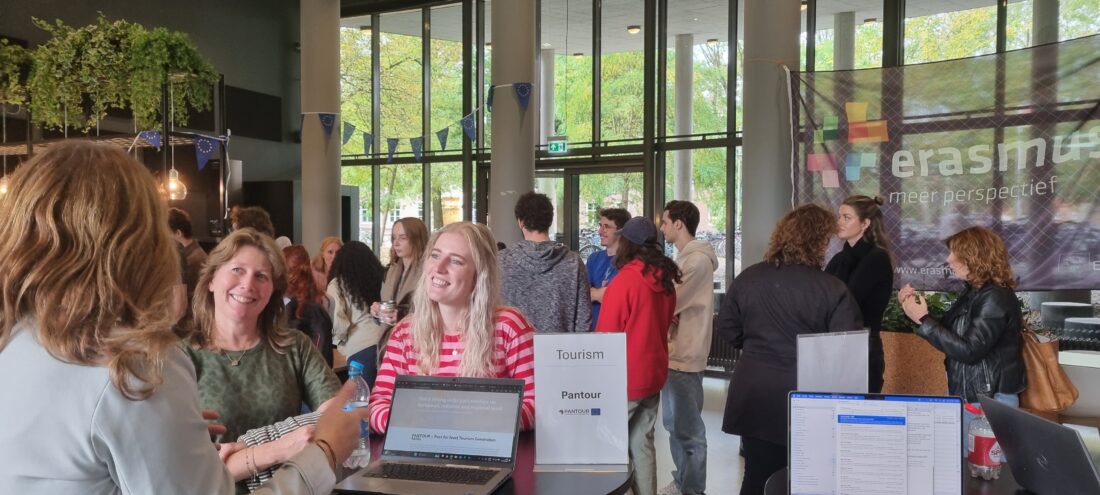PANTOUR celebrated during Erasmus Days 2024
The #ErasmusDays are an international celebration of the Erasmus+ programme, that took place from 14 to 19 October 2024. During these days, events are organised that celebrate the projects and opportunities proposed by Erasmus+. Open to students, teachers, trainers, professionals, and all citizens, the #ErasmusDays promote the numerous benefits that result from the programme. Throughout the week, both digital and physical events will take place, ranging from seminars, multilingual sessions, photo exhibitions, and conferences, to social media challenges, offering a unique chance to connect with people from diverse backgrounds and learn about different cultures. This year, PANTOUR was celebrated in The Netherlands, at Breda University of Applied Sciences.
Erasmus+ has been a transformative program for education, training, youth, and sports in Europe since its inception. The current 2021-2027 phase, with its €26.2 billion budget, emphasises not just the traditional benefits of international exchange and cultural immersion but also aims to tackle modern challenges like social inclusion, the green and digital transitions, and youth participation in democratic processes. This focus aligns with the broader EU goals of building a more inclusive, sustainable, and tech-savvy Europe.
The PANTOUR event at the Breda University of Applied Sciences (BUas) is a prime example of how Erasmus+ initiatives are engaging students and professionals to collaborate and innovate. By providing a platform for exchanging ideas and showcasing projects, such events help integrate the program’s objectives into practical experiences for students. The emphasis on digital, green, and social skills highlights a shift in education towards skills-based learning and challenge-based learning models. These approaches prioritise real-world problem-solving and experiential learning over traditional course-based methods.
This shift aims to better prepare students for the future job market, where adaptable skills and the ability to work on interdisciplinary challenges, especially in fields like tourism, digitalisation, and sustainability, are increasingly valued. Such initiatives not only enhance personal development but also connect academic learning with industry needs, fostering a stronger bridge between education, industry, and government collaborations.
n.




No Comments